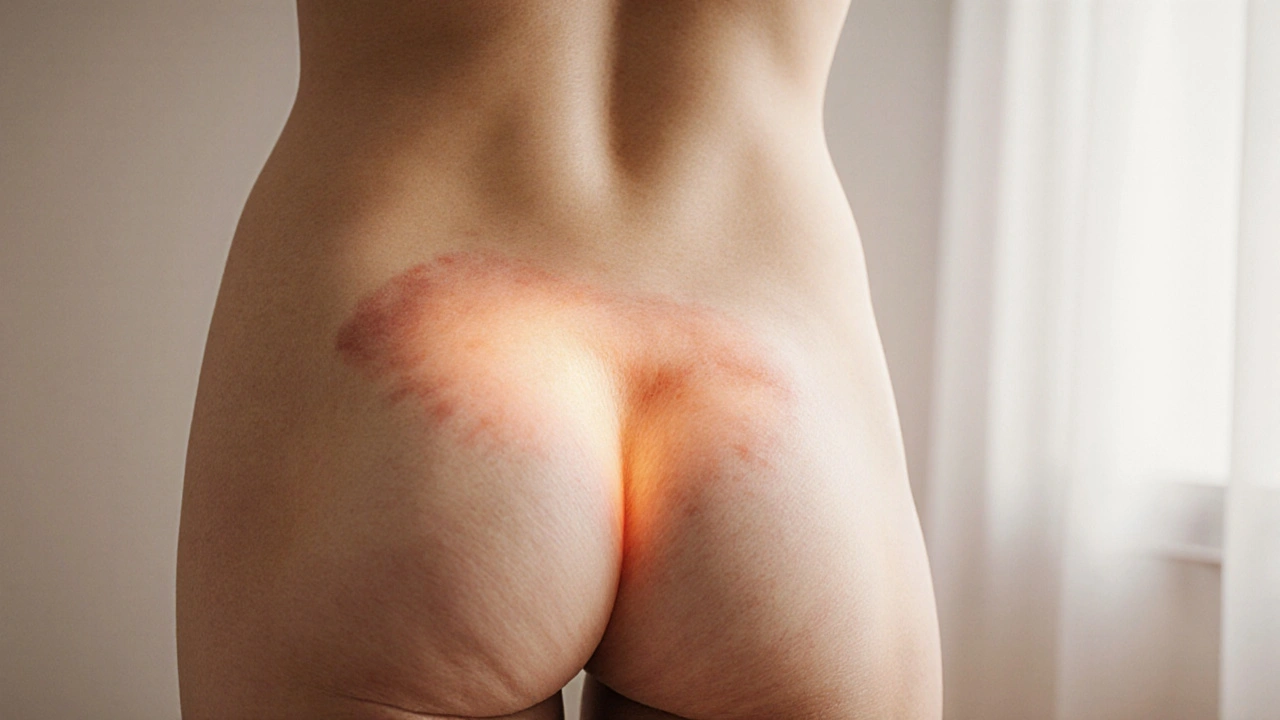Hemorrhoids Itching: What Triggers It and How to Find Relief
When dealing with Hemorrhoids Itching, the uncomfortable, sometimes burning sensation around the anal area caused by swollen veins and skin irritation, many people wonder if it’s just a minor nuisance or a sign of something more serious. It’s not rare – up to a third of adults report occasional itchiness linked to hemorrhoids. The good news is that most cases can be managed with simple lifestyle tweaks and over‑the‑counter products. Below we’ll break down the main reasons it shows up, what you can do right now, and when to get professional help.
First, understand that Hemorrhoids, swollen vascular cushions in the rectal lining that become inflamed or prolapse are the root cause of the itching. When these veins swell, they can stretch the surrounding skin, making it more sensitive to friction, moisture, and stool residue. This sensitivity often leads to Anal Itching, also known as pruritus ani, a distinct but related condition that can exist with or without hemorrhoids. Both issues share common triggers – prolonged sitting, straining during bowel movements, and poor hygiene – creating a cycle that keeps the area irritated.
Key Factors That Fuel the Itch
Diet plays a huge role. Low‑fiber meals produce harder stools, which force you to strain more, increasing pressure on the hemorrhoidal vessels. Spicy foods, caffeine, and alcohol can irritate the lining and boost blood flow, making the skin more prone to itching. On the other side, staying hydrated and eating plenty of fruits, veggies, and whole grains helps keep stools soft, reducing the mechanical stress on the area. Think of your diet as the first line of defense against hemorrhoids itching.
Topical solutions are another practical tool. Over‑the‑counter Creams and Ointments, formulated with hydrocortisone, witch hazel, or zinc oxide to soothe inflammation and protect the skin provide quick relief. Applying them after a gentle cleanse can restore a protective barrier and cut down the urge to scratch, which otherwise worsens the irritation. Remember to use a soft, unscented toilet paper or a wet wipe designed for sensitive skin – harsh paper can scrape the already tender area.
Hygiene habits matter just as much as products. Cleaning the area with warm water and a mild, fragrance‑free soap, then patting dry rather than rubbing, keeps moisture from lingering. For many, a sit‑z bath – sitting in a few inches of warm water for 10‑15 minutes a few times a day – reduces swelling and eases the itch. It’s a low‑cost method that works for both hemorrhoids and anal itching, breaking the cycle of irritation.
When do you need a doctor? If the itch persists despite the above steps, if you notice bleeding, a lump that doesn’t retract, or any change in bowel habits, it’s time to seek professional advice. A physician can rule out other conditions like fungal infections, skin disorders, or even colorectal concerns. They may recommend prescription‑strength creams, minimally invasive procedures, or lifestyle counseling tailored to your specific situation.
Below you’ll find a curated set of articles covering everything from medication side‑effects to buying safe generic drugs online. Whether you’re looking for deeper insights on managing pain, understanding related health issues, or finding reliable pharmacy sources, the collection is designed to give you practical, trustworthy information you can act on right away.
Top 10 Causes of Anal Itching (Pruritus Ani) Explained
Explore the top 10 reasons behind anal itching, from common hemorrhoids to hidden pinworm infections, and learn practical steps to find relief.
learn more